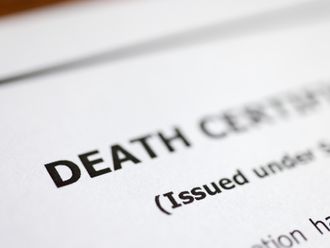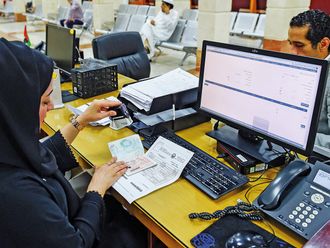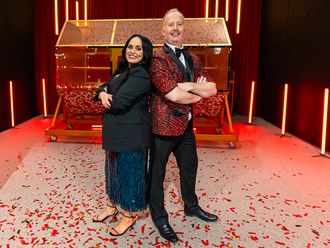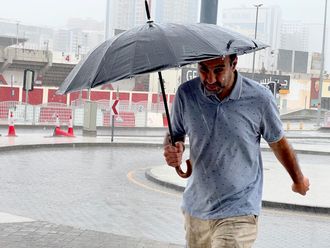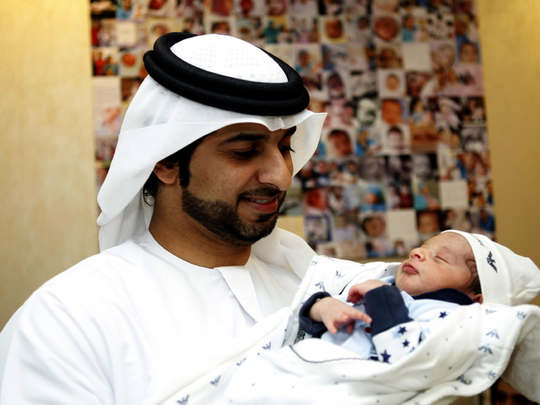
Dubai: It’s a rare occurrence in the UAE for a kidney transplant patient to have children after one year of her surgery. Yet Raabia (not her real name), 30 is a proud mother of two sons — Khalid and Zayed. The last son was born to her early this month at a hospital in Dubai.
“While it is not uncommon in the UK and other European countries for kidney transplant patients, this is the first time that an Emirati woman in the UAE has given birth after her transplant and both were normal deliveries,” says Dr Elsa De Menezes Fernandes, gynaecologist at City Hospital who was responsible for the delivery of both the babies.
“When my wife was diagnosed with failed kidneys right after our honeymoon in 2011, the doctors had given her only a 50 per cent chance of survival and now four years later, I am a proud father of two healthy boys. I am just overwhelmed with so much happiness,” says Mohammad Ali Rida, the proud father.
Raabia’s brother Khalid who donated his kidney was a 90 per cent match and the surgery was carried out at a Munich hospital in 2011. Doctors in Germany had advised her to try starting her family one year after the transplant. In 2012 Raabia had her first child and this month she delivered her second. “I am thrilled with my babies. I feel a little tired, but I cannot thank Dr Elsa enough. She monitored my condition at every step of my pregnancy,” the overjoyed mother says.
Describing the challenges of a kidney transplant patient going through two successful pregnancies, Dr Fernandes says: “The kidneys even for normal mothers have to work 30 per cent harder when a woman is pregnant, clearing out creatinine. This was a renal transplant case, so I had to make sure the patient was taking her immunosuppressant drugs regularly and I was monitoring her kidney functions in conjunction with Dr Mustafa Ahmad at the City Hospital and a team of nephrologists at the Dubai Hospital. It was amazing how the donor kidney was behaving like a native one taking over all the functions.”
Dr Fernandes was particularly careful towards the end of the last trimester when the patient’s creatinine levels were a little higher. “Usually towards the end of the term a doctor has to watch out for pre eclampsia [high blood pressure complications] and also monitor that the baby is not facing any growth problems which can be possible in transplant cases. So I was extra vigilant and am thankful everything went real smooth for both the mother and the baby,” she added.
Commenting on the uniqueness of the case, Dr Babu Shershad, specialist nephrologist said: “It is not uncommon in the West for renal transplant women to become mothers. But, here in the UAE, the percentage of transplant patients is much less and by default the margin narrows down further as it is difficult to find young married women planning to start families within this group. So it is likely this is the first case in the UAE.”


